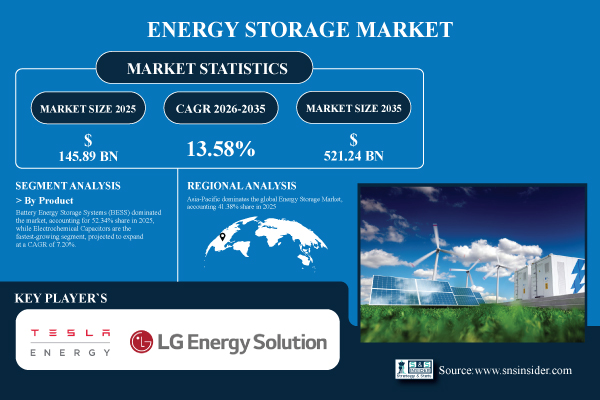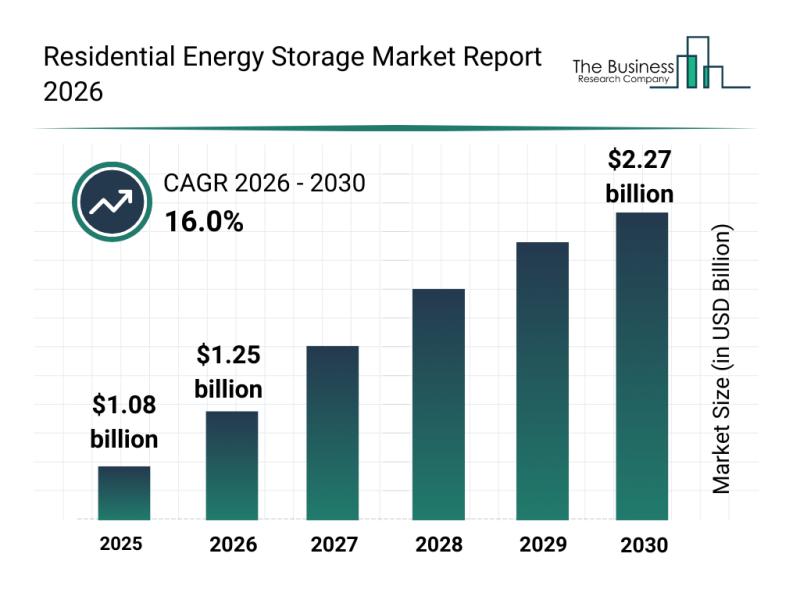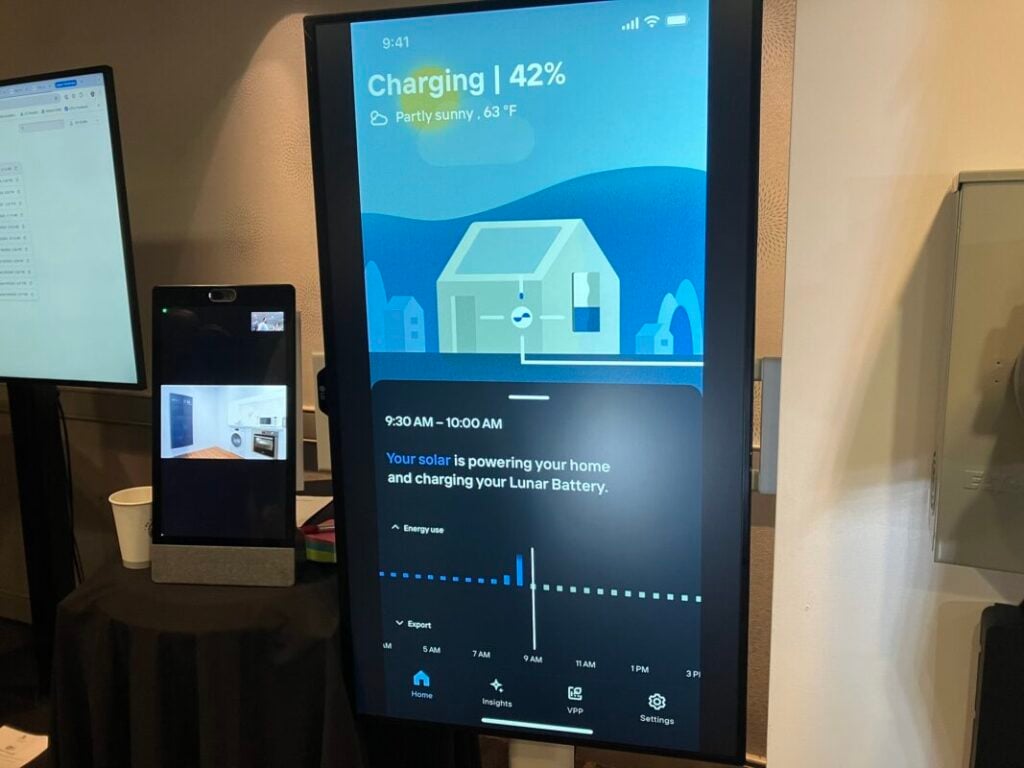As the world continues to prioritize sustainable energy solutions, residential energy storage has become a key player in the transition to a green future. As technology advances and affordability increases, homeowners now have the opportunity to store excess energy produced by renewable energy systems. In this guide, we’ll explore the benefits of residential energy storage, how it works, market trends, selection criteria, and installation and maintenance considerations.
1.1 What is Residential Energy Storage?
Residential energy storage refers to the practice of storing excess energy generated by renewable energy systems, such as solar panels, wind turbines, or even small-scale hydroelectric systems. This stored energy can be used during periods of high energy demand or when the renewable energy source is not actively generating power.
1.2 How Does Residential Energy Storage Work?
Residential energy storage systems typically consist of batteries that store the excess energy generated by renewable energy systems. These batteries can be charged when the renewable energy source is producing more energy than is being consumed. The stored energy can then be used when the demand exceeds the supply or when the renewable energy source is not generating power.
1.3 Benefits of Residential Energy Storage:
- Increased Energy Independence: With residential energy storage, homeowners can reduce their reliance on the traditional power grid and have a more self-sufficient energy system.
- Cost Savings: By utilizing stored energy during peak demand periods, homeowners can reduce their electricity bills and potentially even sell excess energy back to the grid.
- Grid Resilience: During power outages or grid failures, residential energy storage systems can provide backup power, ensuring continuity of essential services.
- Environmental Impact: By maximizing the use of renewable energy and reducing reliance on fossil fuels, residential energy storage contributes to a greener and more sustainable future.
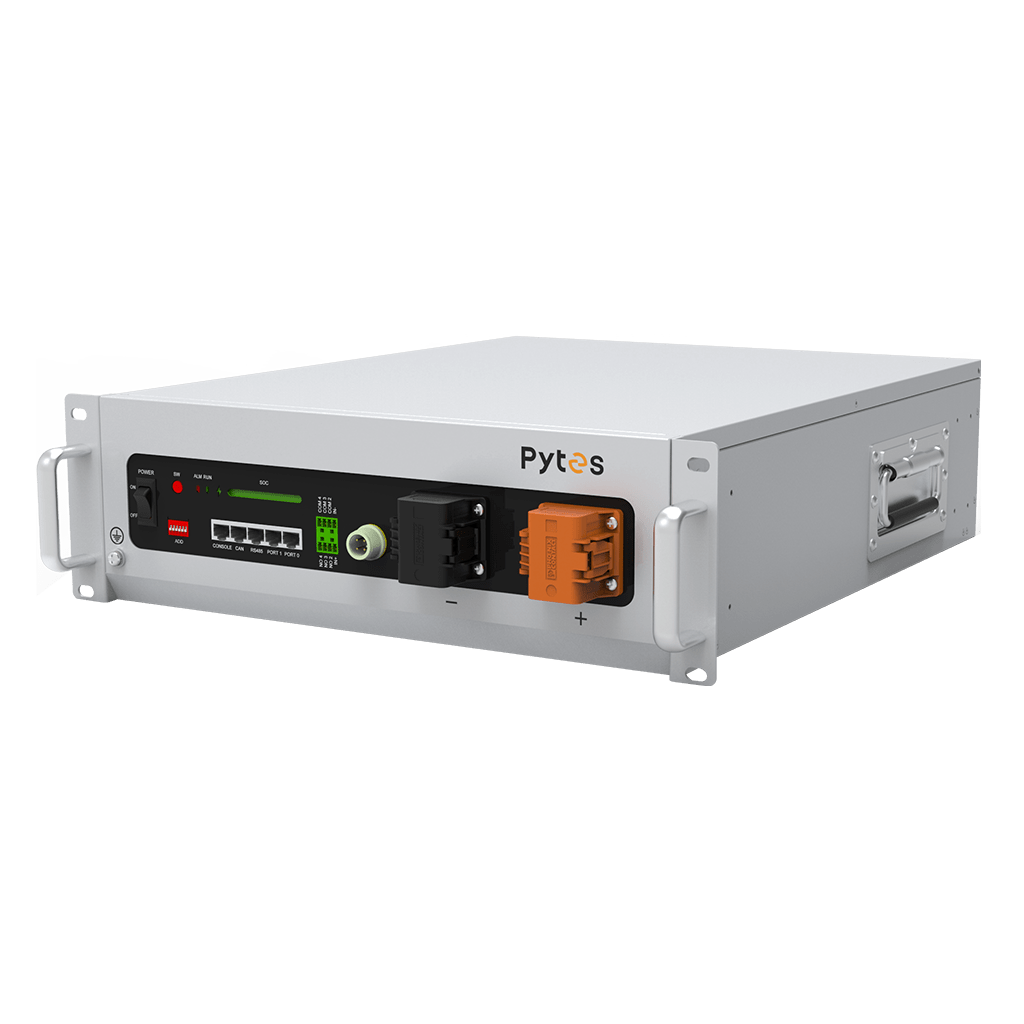
As people embrace renewable energy, the need for home energy storage has increased significantly. In 2023, the output value of residential energy storage will be approximately US$898 million, and is expected to reach US$2.08 billion by 2028, with a compound annual growth rate (CAGR) of 18.3%. Europe has become the largest and fastest-growing regional market for residential energy storage, driven by the increasing use of home-produced green energy and strategies to minimize reliance on variable electricity prices.
There are various factors driving the growth of the global home energy storage market, including:
2. 1 Increased environmental awareness and home owners’ desire to reduce their carbon footprint have prompted an increase in the installation of renewable energy sources such as solar cells
2. 2 Global government initiatives and policies promoting renewable energy adoption will ultimately lead to higher demand for home energy storage solutions
2.3 Increase investment in research and development of lithium-ion batteries to improve battery performance, capacity and cost-effectiveness.
3.1 Capacity and power requirements:
When choosing a residential energy storage system, homeowners need to consider their energy consumption patterns and electricity needs. Factors such as household size, peak energy demand and renewable energy system capacity should be considered to ensure the storage system meets their needs.
3.2 Battery Chemistry Options:
Different battery chemistries have different performance characteristics, costs and lifespans. Lithium-ion batteries, including lithium iron phosphate (LiFePO4) and lithium nickel manganese cobalt oxide (NMC), are commonly used in residential energy storage systems due to their high energy density, efficiency and reliability, such as Pytes V5° or Pytes E-BOX- 48100R.
3.3 Integration with renewable energy systems:
Compatibility and integration with existing or planned renewable energy systems is critical. Homeowners should ensure that energy storage systems can communicate and work effectively with solar panels or other renewable energy sources to increase the return on investment (ROI) of the system.
3.5 Warranty and Lifespan:
Understanding the warranty and life expectancy of a residential energy storage system is critical. Homeowners should consider warranty periods, battery degradation rates to ensure system longevity and reliability.
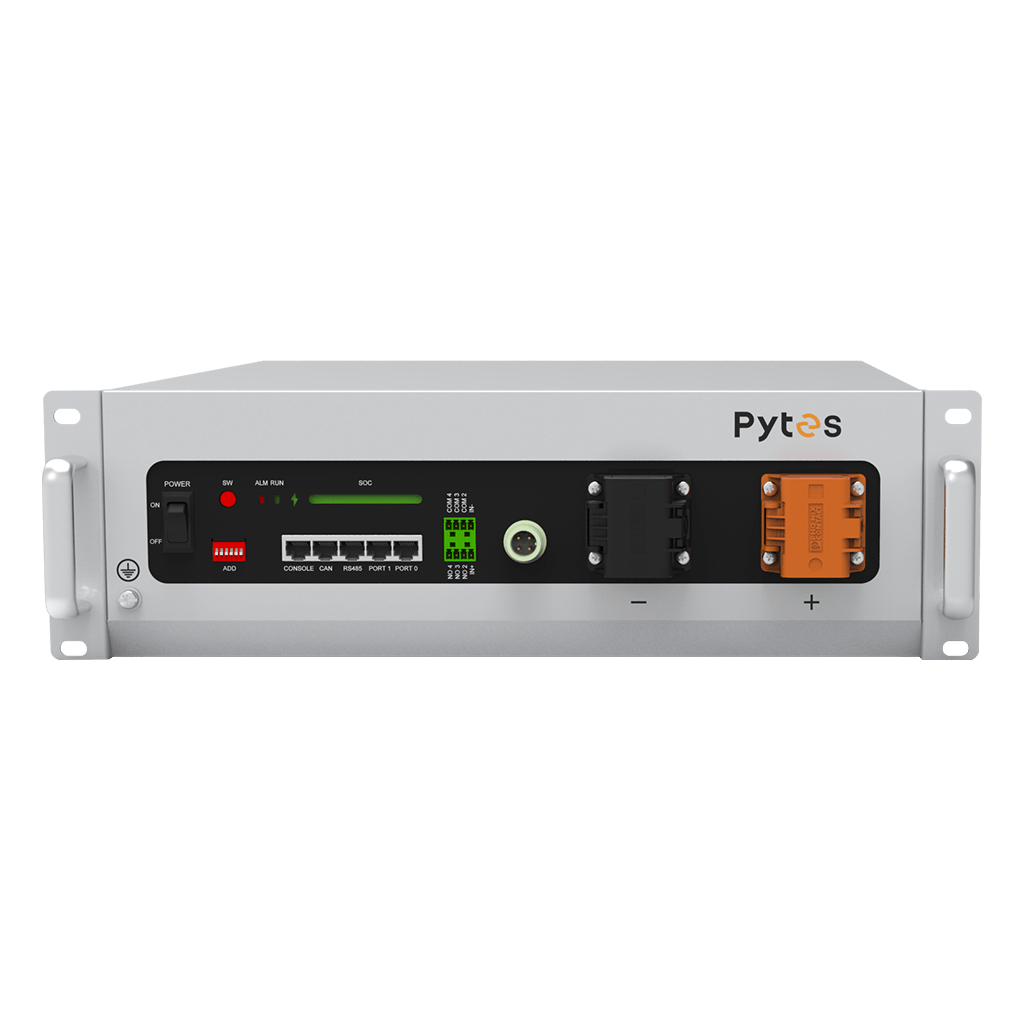
4.1 Installation process and requirements:
The installation of a residential energy storage system usually requires working with a professional installer. Here we recommend that you consider Pytes. Our professional technical team will evaluate your electrical setup, determine the best location for the battery, and ensure compliance with local regulations and safety standards.
4.2 Security considerations:
Homeowners should prioritize safety when installing and maintaining residential energy storage systems. This includes proper ventilation, fire safety measures and compliance with electrical codes and guidelines.
4.3 Monitoring and maintenance of household energy storage systems:
Regular monitoring and maintenance are essential to ensure optimal performance and longevity of your energy storage system. This includes monitoring battery health, software updates, and regular checkups.
4.4 Troubleshooting common problems:
While residential energy storage systems are designed to be reliable, problems can occasionally arise. Homeowners should be familiar with common troubleshooting steps. If necessary, please contact Pytes. Our professional technology will help you solve residential energy storage system installation problems.
The V5° is a new rechargeable Li-Iron Phosphate battery developed and manufactured by Pytes for solar battery storage systems. It stores 5.12 kWh of energy, offers a continuous charge/discharge capacity of 3.84 kW (max. 5.12kW-1C), has a 10-year warranty and can be recycled up to 6000 times. We have also outfitted the battery with a proprietary high current battery management system (BMS), ensuring comprehensive protection. This BMS includes closed-loop communication and autonomously handles charge and discharge configurations, balances batteries, and enhances performance.
Recently, the Pytes residential energy storage battery- V5° was successfully used with Sol-Ark inverters and has received UL 9540 certification.
5.1 Highlights of Pytes V5°
1. Can be expanded according to needs
The new LFP cells can also be expanded based on demand. It can be expanded to a maximum of 430.08kWh (with hub), and a group can support up to 14 units in parallel. This means homeowners can easily add more battery units as energy needs grow without having to replace the entire system.
2. Self heating
Another great feature of the new lithium iron phosphate battery is its self-heating capability. Heating can be automatically started in cold environments to ensure normal use and battery life. This is especially useful for homeowners who live in colder climates and want to ensure that their battery system is always running optimally.
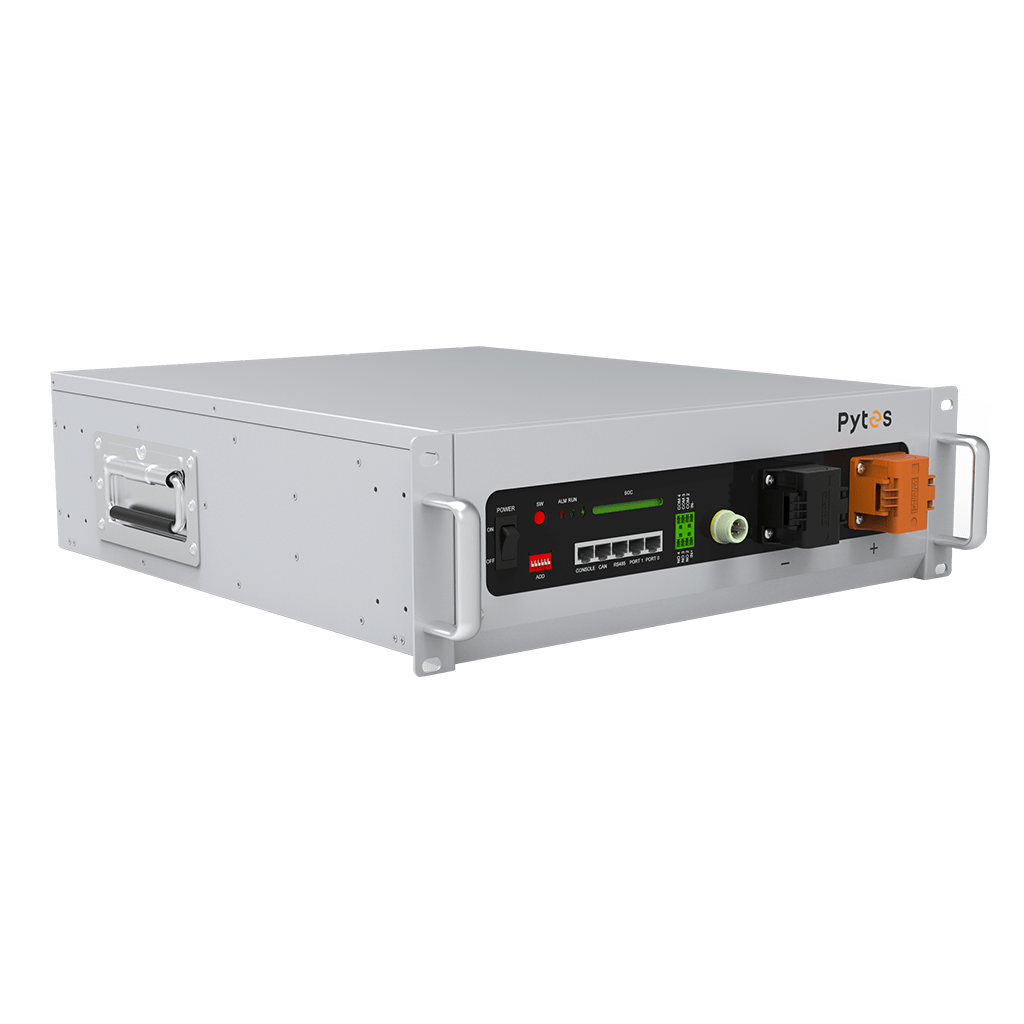
By understanding how it works, market trends, selection criteria, and installation and maintenance considerations, homeowners can make informed decisions when adopting residential energy storage systems. Choosing a residential energy storage battery for your solar system is a critical decision that affects its performance, efficiency and long-term cost-effectiveness. Before making a decision, it is recommended that you consult Pytes and our technical staff will provide you with professional guidance.
Email:pytesusa@pytesgroup.com
